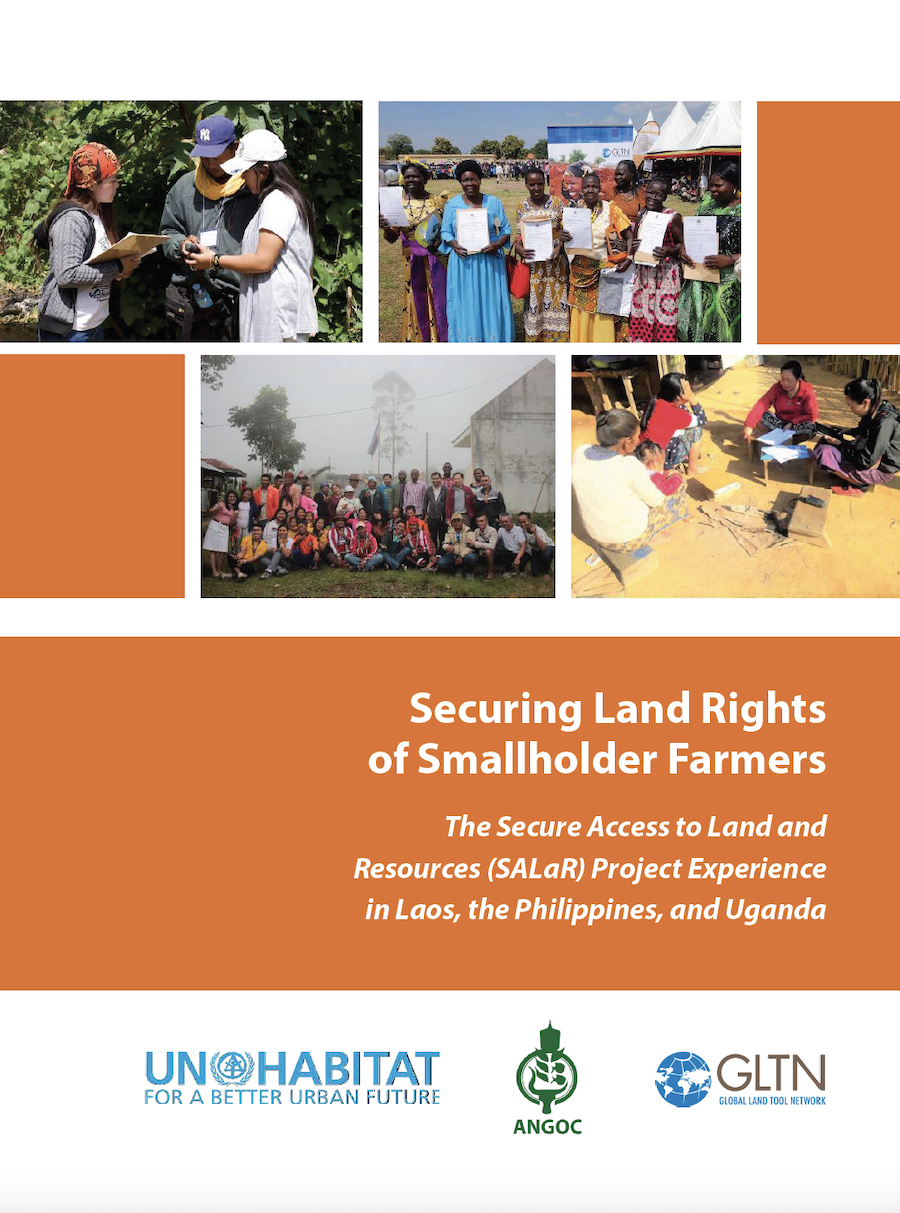Focal point
Location
The Global Land Tool Network (GLTN) is an alliance of global regional and national partners contributing to poverty alleviation through land reform, improved land management and security of tenure particularly through the development and dissemination of pro-poor and gender-sensitive land tools.
Secure land tenure and property rights are fundamental to shelter and livelihoods as well as the realisation of human rights, poverty reduction,economic prosperity and sustainable development.
The Global Land Tool Network (GLTN) main objective therefore is to contribute to poverty alleviation and the Millennium Development Goals through land reform, improved land management and security of tenure.
UN-Habitat through GLTN continues to work towards this with partners who include international civil society organizations, international finance institutions, international research and training institutions, donors and professional bodies.
Most developing countries use conventional land administration systems which cover less than 30 per cent of the country, leaving up to 70 per cent of citizens looking to informal and/ or customary approaches for their tenure security.
While there are many examples of good land policies, there are few policies that have been fully implemented due to lack of pro-poor, gendersensitive and largescale land tools. Further, conventional land titling approaches have largely failed to deliver their expected results since existing technical solutions are too expensive, inappropriate for the range of tenure found in developing countries, unsustainable financially or in terms of available capacity, and instead a range of land tenure options is more appropriate.
Core Values
Consequently, GLTN's core values and principles are founded in the development of land tools that are:
- Pro poor;
- Equitable;
- Sustainable;
- Affordable;
- Systematically large scale /scalable; and,
- Gender-sensitive, while taking into consideration:
- Good governance;
- Subsidiarity; and,
- The Continuum of Land Rights.
GLTN Objectives and Mandate
GLTN has developed a global partnership on land issues pulling together global partners, as well as many individual members. These partners include international networks of civil society, International Finance Institutions, international research and training institutions, donors and professional bodies. It continues to take a more holistic approach to land issues by working towards the following objectives:
- The establishment of a continuum of land rights, rather than just focus on individual land titling
- Improving and developing pro-poor land management, as well as land tenure tools
- Unblocking existing initiatives Assisting in strengthening existing land networks
- Supporting in the development of gendered land tools which are affordable and useful to grassroots
- Improving the general dissemination of knowledge about how to improve security of tenure
- Improving the general knowledge dissemination on the improvement of security of tenure
Resources
Displaying 11 - 15 of 286WOMEN, LAND AND PEACE
These messages were developed based on the field experience in fragile and crisis affected contexts of UN-Habitat and the partners of the Global Land Tool Network and the HLP Area of Responsibility of the Global Protection Cluster. They are a quick reference on how to empower women and protect their housing, land and property rights in fragile and crisis affected contexts and why this is an essential element to sustain peace and stability.
Valuation of Unregistered Land – A Practice Manual
Value, and its attribution to unregistered land, is important information for effective land acquisition, taxation and transfer processes and a key component of land administration systems.
Securing Land Rights of Smallholder Farmers
This report summarizes the background, achievements and emerging outcomes of the Securing Access to Land and Resources (SALaR) project implemented towards improving land and natural resources tenure security for rural poor smallholder farmers, including women, men, youth and vulnerable groups in Uganda, Philippines and Laos.
Getting it right from planning to reporting: A guidance tool for women’s land rights data and statistics
To ensure a better and more sustainable future for all, the 2030 Agenda for Sustainable Development (“the 2030 Agenda”) has identified 17 Sustainable Development Goals (SDGs) to be achieved by 2030. SDGs range from poverty eradication, zero hunger, decent work and reduced inequalities to quality education, clean water and sanitation, and gender equality, only to name some of them.
Getting it right from planning to reporting: A guidance tool for women’s land rights data and statistics
To ensure a better and more sustainable future for all, the 2030 Agenda for Sustainable Development (“the 2030 Agenda”) has identified 17 Sustainable Development Goals (SDGs) to be achieved by 2030. SDGs range from poverty eradication, zero hunger, decent work and reduced inequalities to quality education, clean water and sanitation, and gender equality, only to name some of them.






